We rarely see indie developers tackle the rhythm genre, and for understandable reasons. It’s not a genre with mass market appeal, but it’s also one filled with established franchises backed by more budget and polish than an indie studio could muster. And with simple mechanics that aren’t easily innovated upon, the rhythm genre seems like one actively hostile to indies (and there’s also the practical cost of licensing music, which can always be an issue).
This is to say that LOUD, the newest game from Polish outfit HyperStrange, has an uphill battle on its hands. This seems to be the attitude held by its protagonist, Astrid, as she goes from a bedroom punk rocker, to a hopeful street busker, to a member of an up-and-coming band. LOUD’s rhythm levels are sequenced by this heartfelt narrative which seems to follow in the footsteps of similar earnest titles like A Short Hike or Night in the Woods. But the earnestness here is hit-or-miss – it’s high-school diary cliches and overexcited gushing, and while the voice acting feels accurate to an adolescent, it’s not necessarily a type of voice that is the most pleasant to listen to. If you like an honest, ordinary story then LOUD’s narrative segments might hit the mark, but I found myself skipping it.
The rhythm game itself is a six-button affair that plays similarly to the Persona Dancing series. Notes fly in from the centre, and players need to hit one of the face buttons in time with the notes. There’s the standard hold notes, but also a frustrating “mash” note that feels very unnatural on the Joy Con’s tiny buttons. The difficulty is never too hard, too. While there’s three settings, I found myself getting perfects on the first try on Medium difficulty, and mastering the Hard difficulty after a few tries.
LOUD’s soundtrack is solely pop-punk, and that’s one of its biggest drawbacks. Don’t get me wrong, I love punk music, and the tracks in the game are pretty good examples of the genre. They’re high energy, a lot of fun, and have memorable riffs that differentiate them from one another. But there’s a good reason why most rhythm games focus on electronica, or hip hop, or anisong: it’s because those genres have a lot of moment-to-moment complexity, so that players need to be constantly adapting to new rhythms across verses and choruses.
Meanwhile, pop punk is successful precisely because it is repetitive – its best moments are its crunching power chords and soaring refrains – but these don’t translate very well to button-based rhythm gameplay. The only rhythm game I’ve found that did punk music justice was Guitar Hero, and that was because of the peripheral controller that you could wave around while pretending to be a rock star. In LOUD meanwhile, you’re tapping buttons and not having quite as much fun as Astrid seems to be having on screen. With each song I was wondering what the point of a third chorus was – it’s the same beat pattern, I’m not being challenged, but I still need to plug it out to finish the level.
Aside from that, LOUD is a perfectly serviceable rhythm game. The songs are the highlight, even if playing them is not the most engaging experience. The art is enjoyable, and I did like unlocking the extra costumes and guitars for Astrid as she climbs the ranks of her local music scene. While I like the idea of having a narrative mode in theory, and perhaps a future rhythm game might play with how narrative might function within the genre, I found Astrid’s story to be too standard and predictable to catch my attention.
Everything is fine, it’s all serviceable, and if you prefer real instruments to the standard electronic and anisong mix that you might get with DJMAX or Cytus, LOUD might have something for you. But there are certainly better rhythm games out there on the Switch, too.
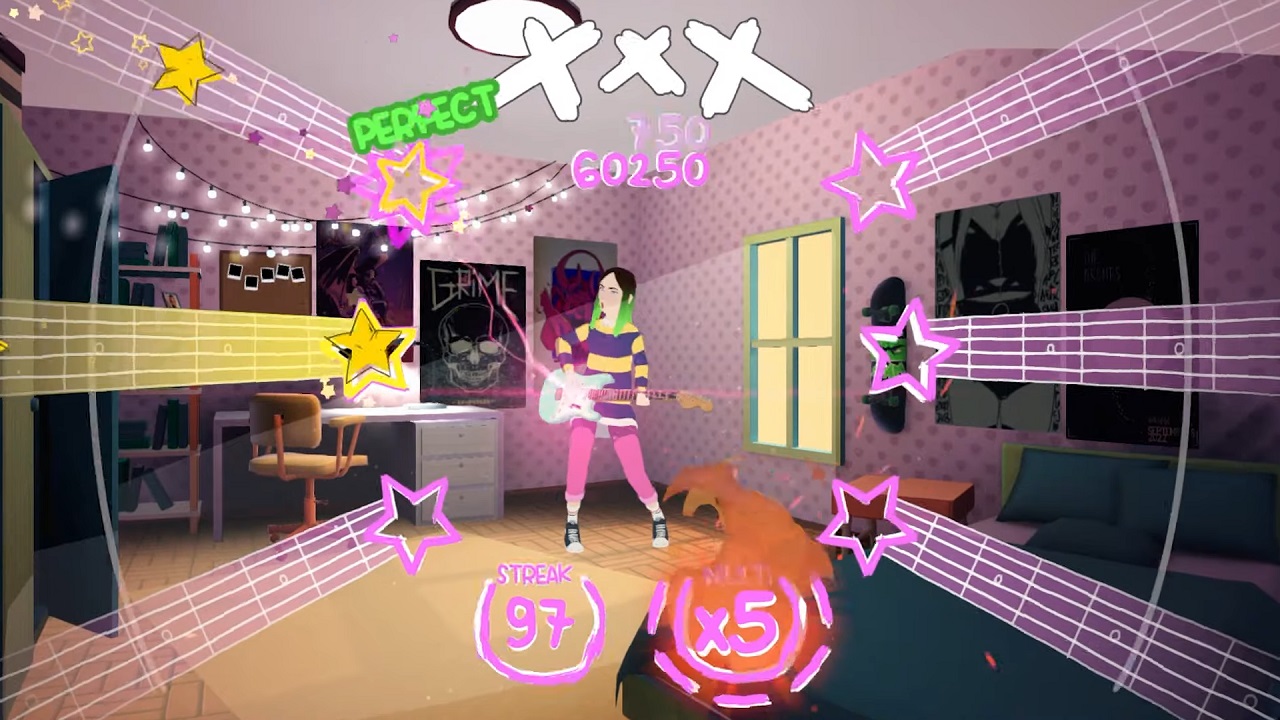

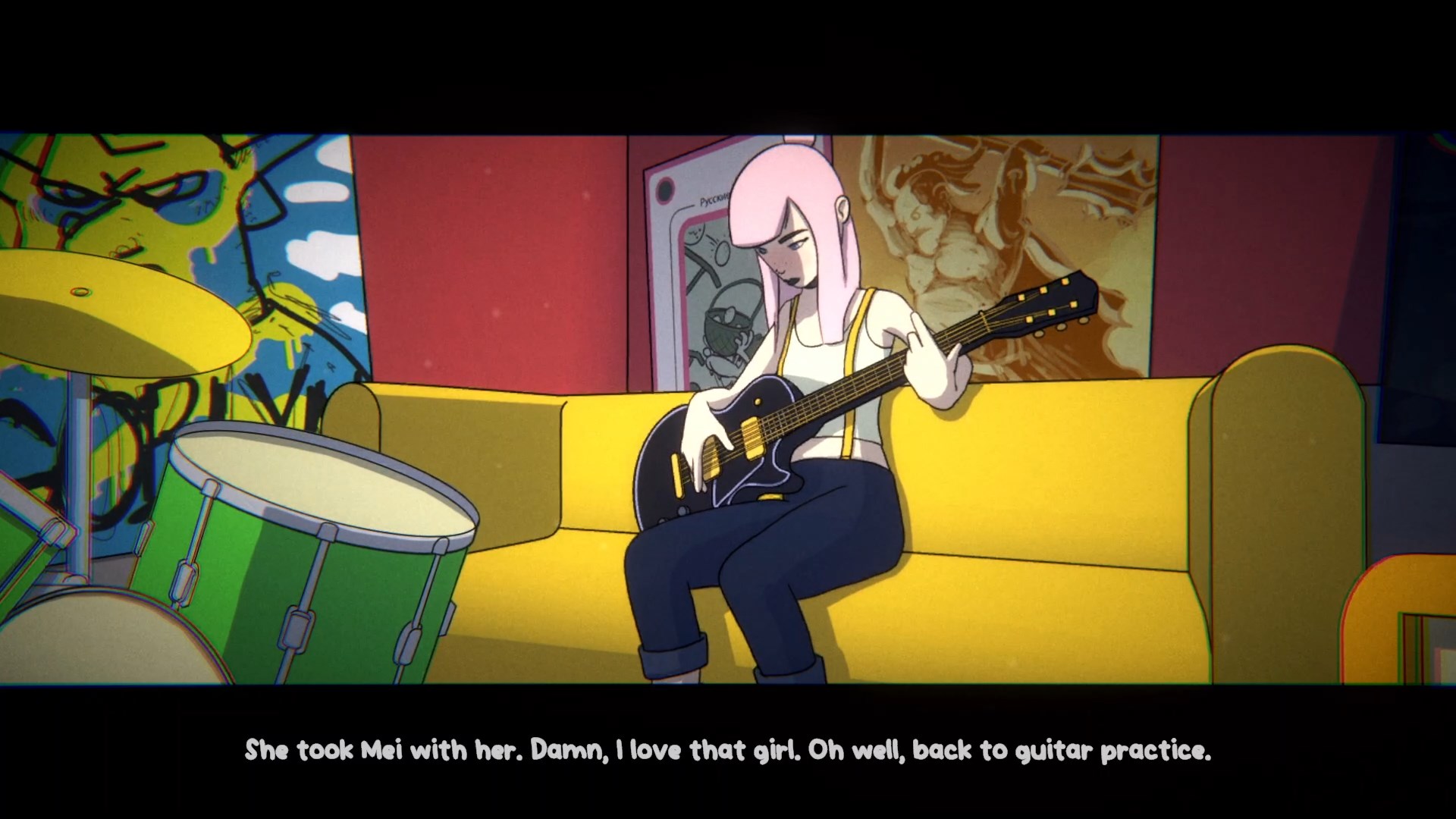
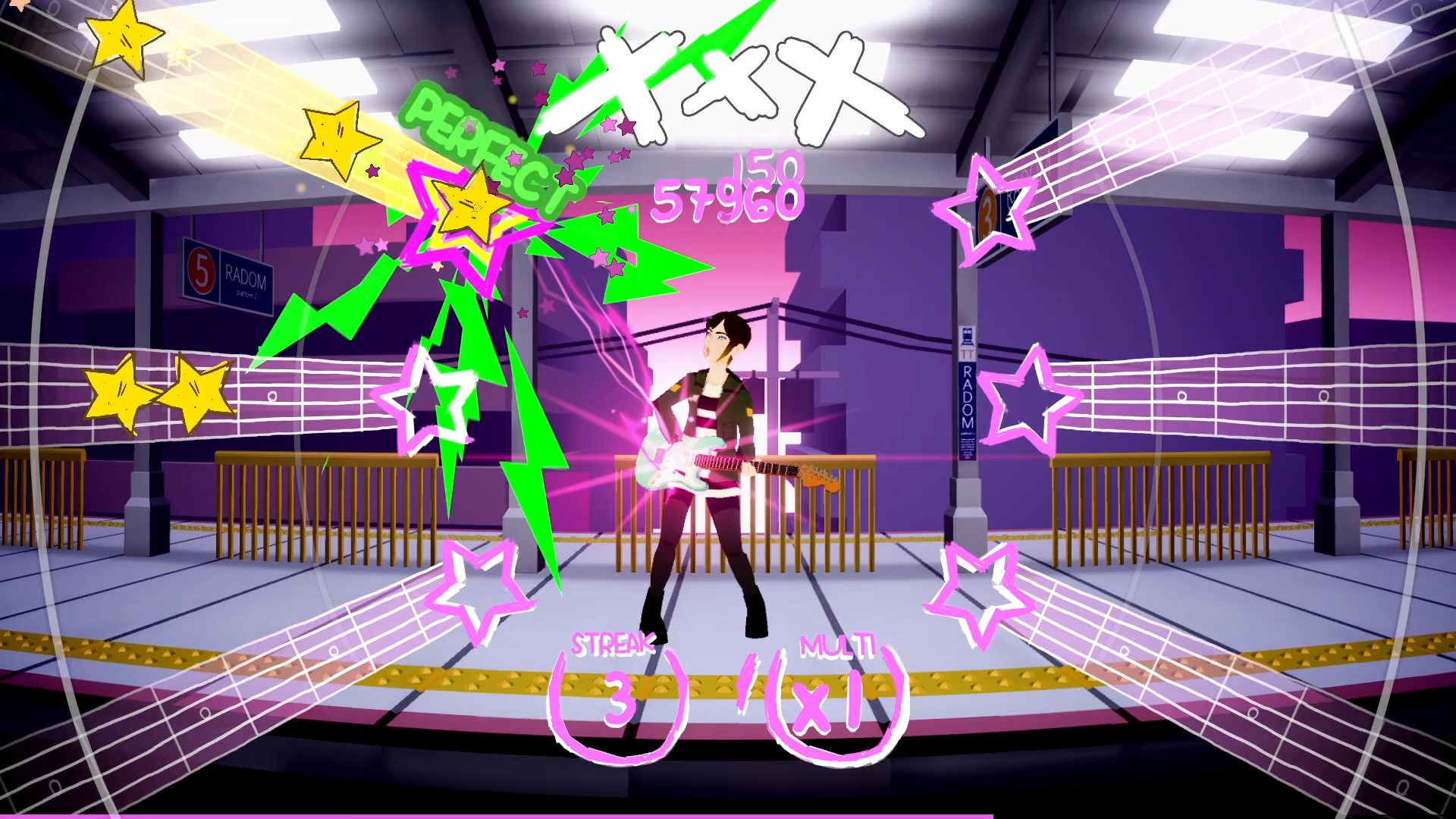

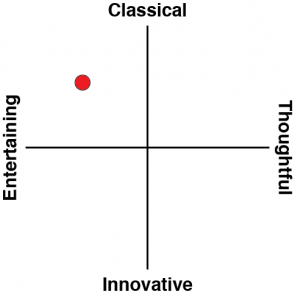




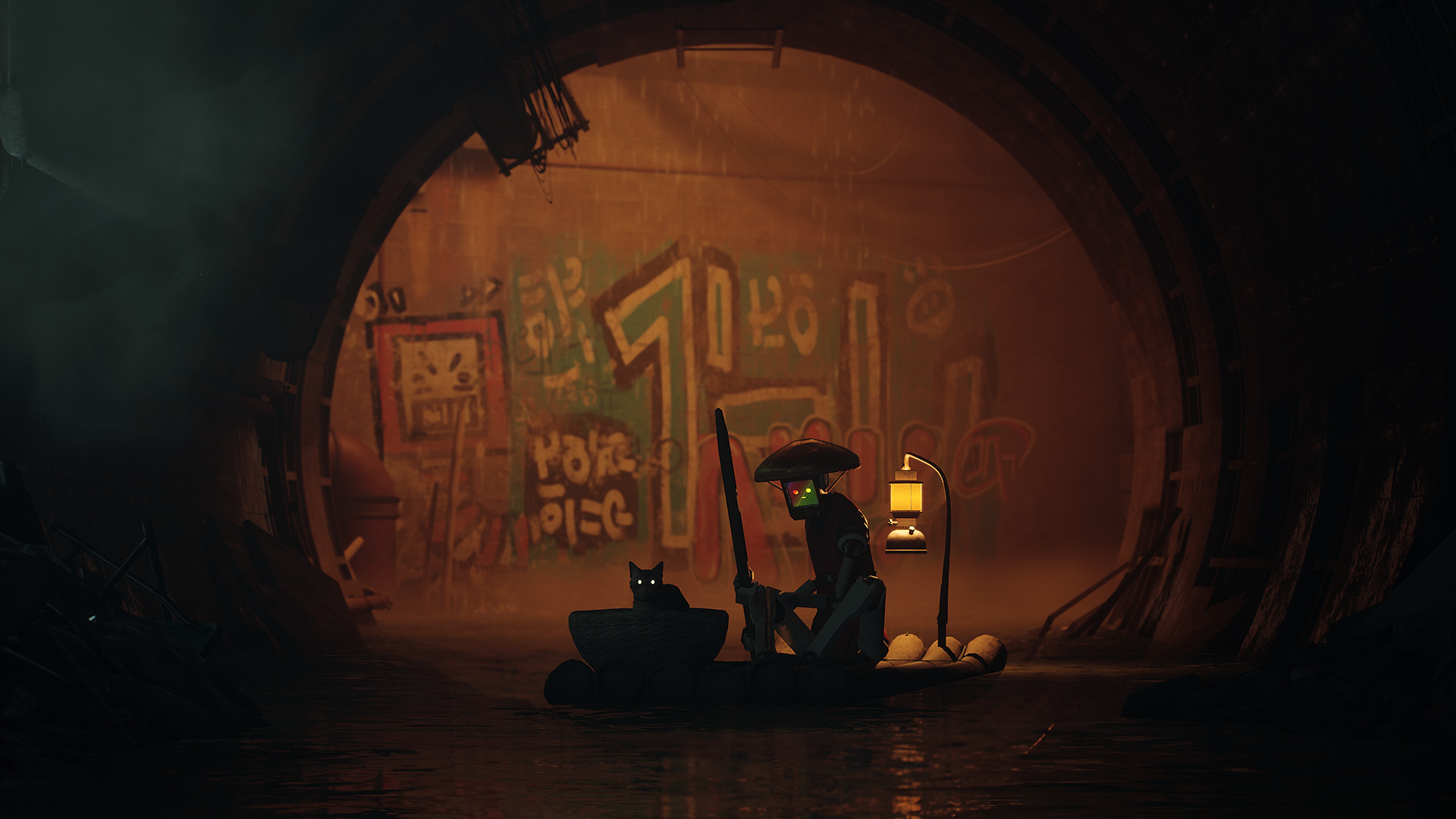
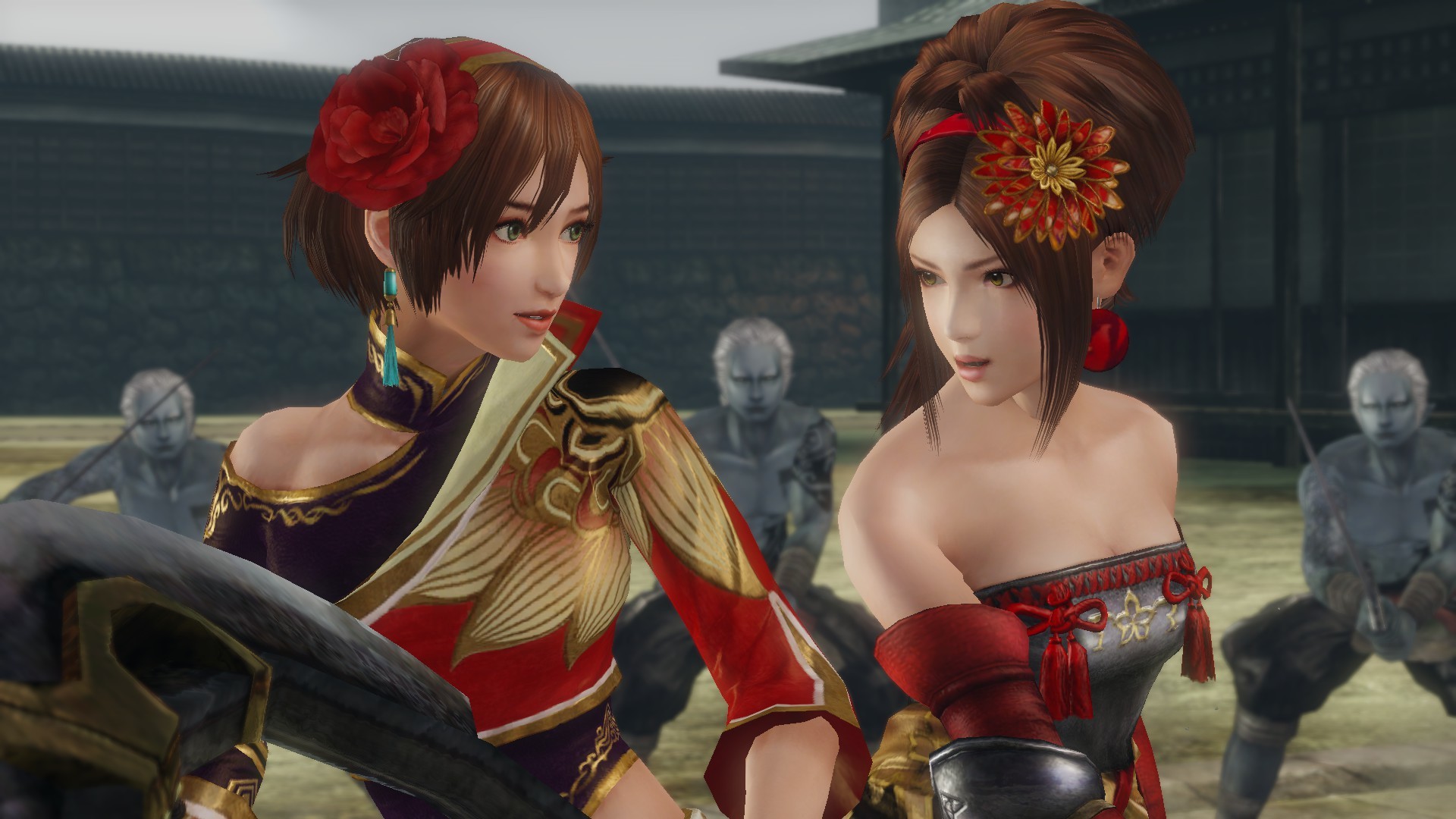


For $6 USD, I bought this in a heartbeat! Fun tunes, worth a couple hours of play … and my kids will enjoy it too.